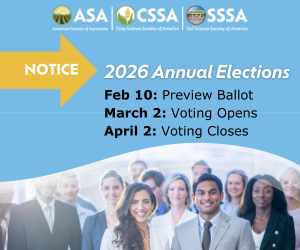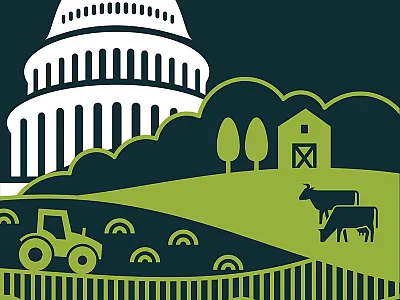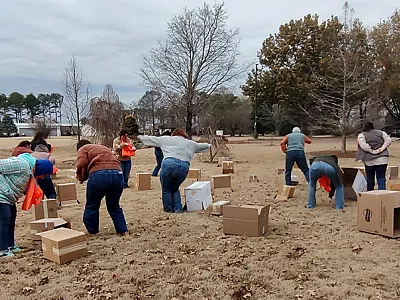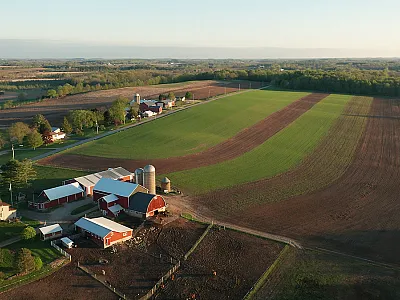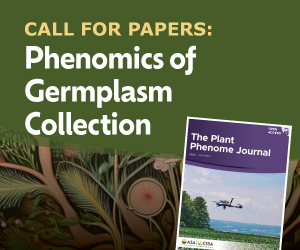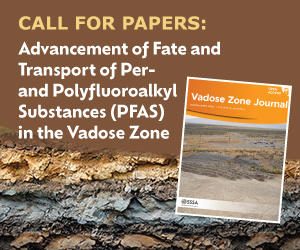Publications Update
Journals Appoint New Editors, Pilot Plain Language Summary Program
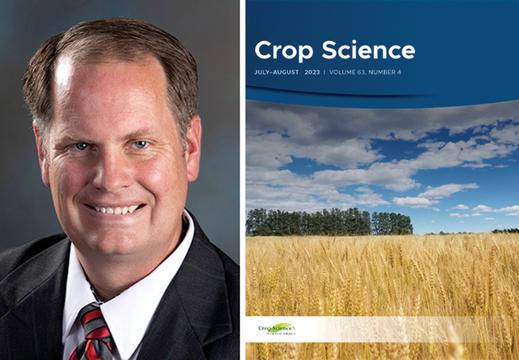
Journals Appoint 2024 Editors
New Editors have been appointed for the journals Crop Science and Agrosystems, Geosciences & Environment for the 2024–2026 term that begins on January 1 next year.
Crop Science
Glen Ritchie has been appointed as the 2024–2026 Editor of Crop Science. Ritchie, who is the J.A. Love Endowed Chair and Professor of the Department of Plant and Soil Science at Texas Tech University, has an active research and teaching program examining plant–water relations in cotton and sorghum. He has served on the Crop Science editorial board as Associate and Technical Editor and has been involved in other CSSA committees over the years.
Glen Ritchie will be the new Editor of Crop Science starting in 2024.
Founded in 1961, Crop Science serves as CSSA’s flagship journal. Articles include original research on any aspect of crop science including agronomy, physiology, and genetics. The journal has become increasingly international over the years and serves a global audience.
Most recently, Crop Science has been focusing on developing special sections and expanding the geographical and topical diversity of its editorial board. Crop Science also recently began publishing content from the former publications Horticultural Reviews and Plant Breeding Reviews.
Agrosystems, Geosciences & Environment
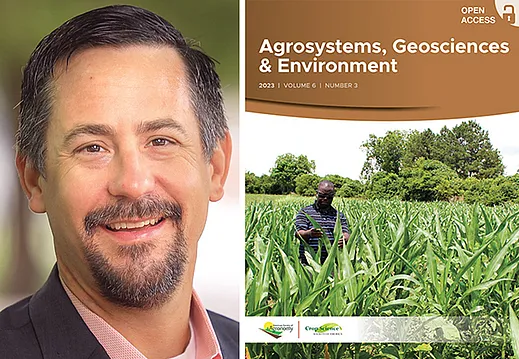
Brian Arnall has been appointed as the 2024–2026 Editor of Agrosystems, Geosciences & Environment (AGE). Arnall, who works at the Department of Plant and Soil Sciences at Oklahoma State University as a State Extension Specialist, focuses his research on precision technologies and applied nutrient management in all of Oklahoma’s cropping systems with an emphasis in site‐specific techniques. Brian has served as Associate Editor for both AGE and Crop, Forage & Turfgrass Management and has served as Senior Editor for AGE since 2022.
Brian Arnall will be the new Editor of Agrosystems, Geosciences & Environment starting in 2024.
Agrosystems, Geosciences & Environment is a fully open access journal with a distinguished editorial board and a rigorous peer review. First published in 2018, AGE covers all aspects of agriculture, plant science, the environment, geoscience, and soil science. It provides a venue for content not typically published in other prominent journals, including experiments that are limited in geography or time (e.g., a single site‐year), soil survey data papers and other significant data sets, confirmatory papers, and reports of negative results.
Journals Pilot Plain Language Summary Program
Three of our journals—Crop, Forage and Turfgrass Management (CFTM); Journal of Environmental Quality (JEQ); and The Plant Genome (TPG)—are taking part in a pilot program to encourage authors to submit plain language summaries.
Plain language summaries are aimed at scientists in other fields, researchers across disciplines, students, and readers not fluent in English as well as the editorial board. Summaries in CFTM will also be aimed at practitioners.
A plain language summary explains the article’s research and relevance in straightforward language free from jargon. Depending on target audience, writing is often high school or undergraduate level of understanding. The goal is a paragraph that is easy to read.
If the article is accepted, the plain language summary will appear with the abstract in the html version and be fully searchable. It may also be used to further promote the article.
These summaries will be collected at submission. CFTM and TPG will require plain language summaries during this pilot while JEQ will encourage but not require them.
Other societies’ journals have seen an increase in performance metrics for articles that have plain language summaries. In addition, these summaries may allow editors to more quickly route the manuscripts to the correct technical or associate editor. And staff may find it easier to understand a paper’s significance compared with the more scientific abstract for possible promotion.
Our plain language summaries will have a limit of 150 words. We recommend that authors structure their plain language summary with four key elements: topic overview, research purpose, summary of findings, and key takeaways. Each journal will soon post their individual requirements on their respective author instructions pages: agronomy.org/publications/journals/author‐resources/cftm‐instructions (for CFTM), soils.org/publications/journals/author‐resources/jeq‐instructions (for JEQ), and crops.org/publications/journals/author‐resources/tpg‐instructions (for TPG).
Text © . The authors. CC BY-NC-ND 4.0. Except where otherwise noted, images are subject to copyright. Any reuse without express permission from the copyright owner is prohibited.



